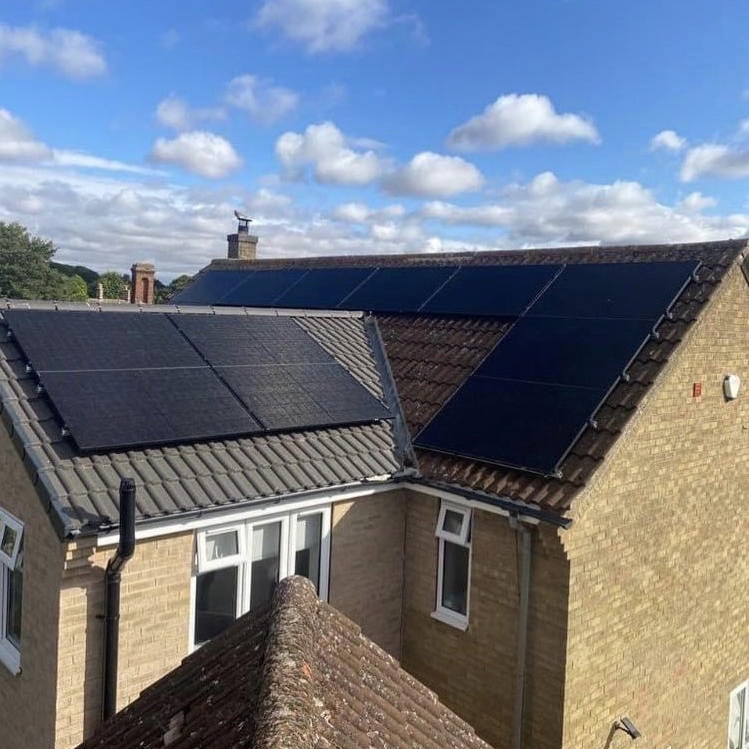Solar PV panels use energy from the sun and convert it to electricity.
You can save up to 90% on your electricity bills.
Get a free energy review today
What are Solar PV Panels?
Solar panel are also commonly also known as solar photovoltaics or solar PV.
They have been the renewable energy choice for many over 20 years. There have been various funding and Government schemes over the last 15 years to encourage property owners to install solar panels but, even without these incentives, solar PV panels still remain an excellent choice for reducing your carbon footprint and saving money on your electricity bills.
Some people think “What’s the point in getting panels in the UK as we don’t get a lot of sun”’ The answer is simple as Of course, the stronger the sunshine the more electricity is produced, but even on cloudy and overcast days the cloud is still penetrated by a sufficient amount of solar radiation which is enough to generate electricity.
What are the benefits of Solar PV Panels?
Still not sure if Solar PV is right for you? Here are a few reasons to choose solar panels:
- Solar power is a renewable energy source.
- You will see a massive reduction in your energy bills as you are generating your own electricity.
- You can also receive payments for the electricity that you generate and don’t use.
- With solar panels you will be protected against future energy price rises.
- The value of your property will increase as reduced energy bills appeal to potential buyers
- Most solar panel installations don’t require any planning permission and can be installed in 1-2 days (depending on the project).
- Solar panels require very little maintenance.
- When used alongside solar battery storage, you can store and use the generated power at night.
- Solar panels generate electricity silently - no need to annoy the neighbours!!



